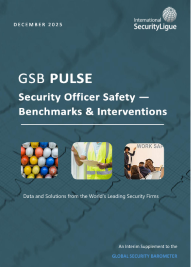
What is “Private Sector Security Intelligence”?
Private sector security intelligence generally refers to the application of intelligence gathering and analysis to external environments to enhance strategic decision-making and to mitigate geopolitical and security risks.
How has it evolved?
Over the past two decades, intelligence tradecraft in the private sector has expanded significantly, focusing on security risk mitigation to facilitate business decision-making. In response to an uncertain global operating environment, companies are increasingly investing in intelligence, which is contributing to growth in the transnational private sector intelligence community and putting the field on a gradual progress toward professionalization.
How are today’s businesses benefitting from security intelligence?
It supports strategic decision-making related to risk and security, as well as strategic opportunity. It also positions organizations ahead of events. When intelligence reduces an organization’s uncertainty, even by a small margin, its leaders have more time to plan, communicate, and prepare the organization, which has significant value.
Are there risks involved?
Security intelligence often derives from open-source intelligence (OSINT), which refers to any information that can be legally accessed or observed by the public. This low barrier-to-entry to information gathering can be deceptive, however, as effective security intelligence requires specific expertise, skills, and tools. Collecting information is easy, but distinguishing the “signal from the noise” is a vital aspect of gathering intelligence for an early warning of disruptive events and making sound decisions. Because private sector intelligence is a developing field lacking standardization and a body of knowledge, organizations may choose to rely on external firms rather than developing internal security intelligence teams themselves.
How can businesses maximize the value of intelligence for security?
A successful early warning system focuses on asking questions about risk with respect to company assets, priorities, and risk tolerance, such as: what’s likely to happen next? which locations could be impacted? and how significantly? The answers to those questions provide executives with a roadmap to utilizing intelligence. Effective utilization requires tapping into professional intelligence networks, narrowing information sources, mapping external events against business interests, and acknowledging the predictive limitations of intelligence. Not every event can be predicted, so companies must use intelligence while maintaining an ability to be nimble to develop resilience.






